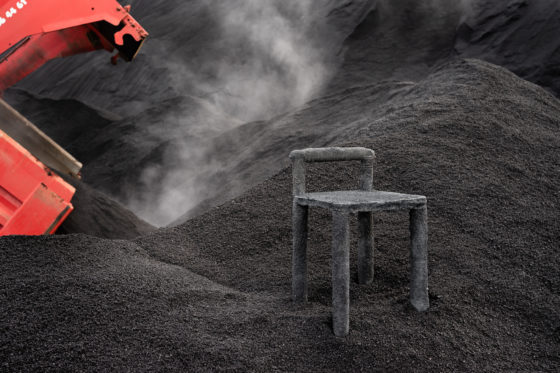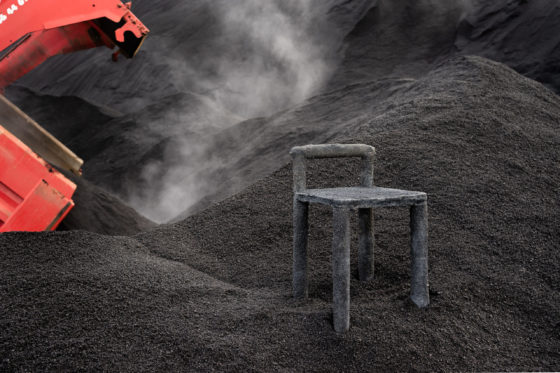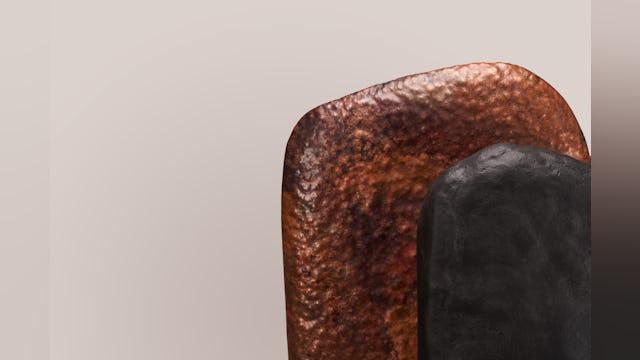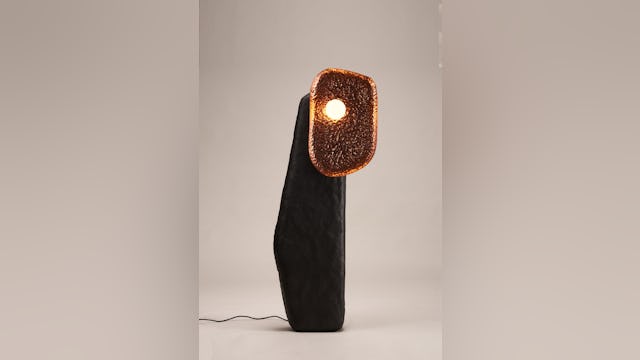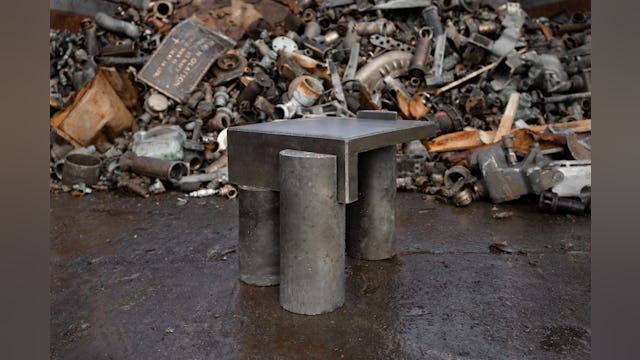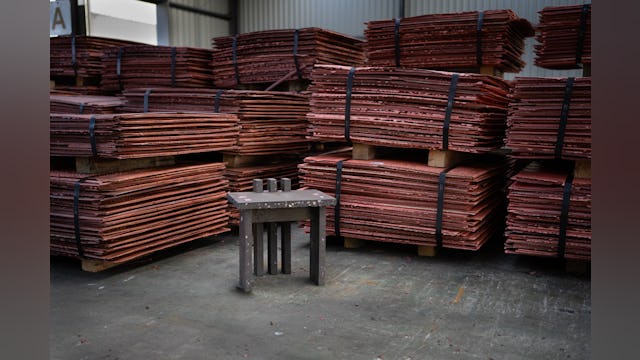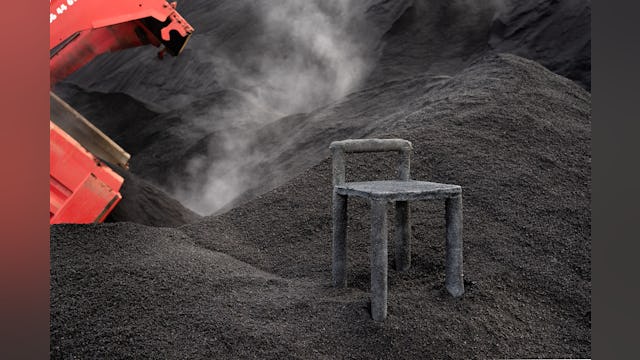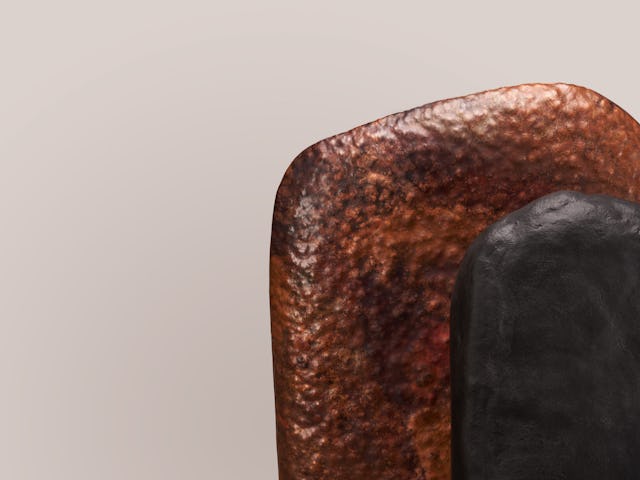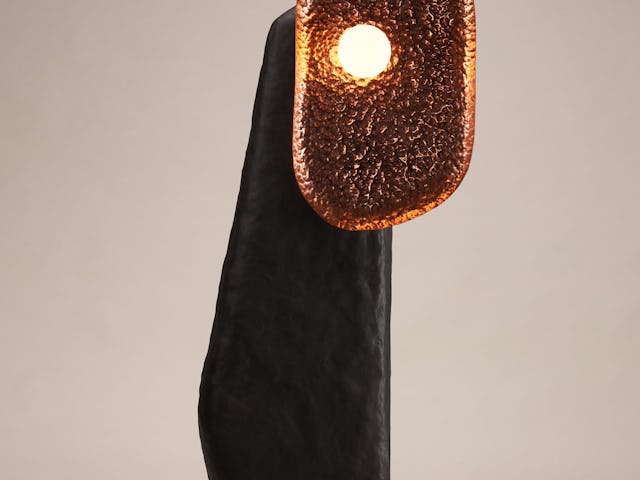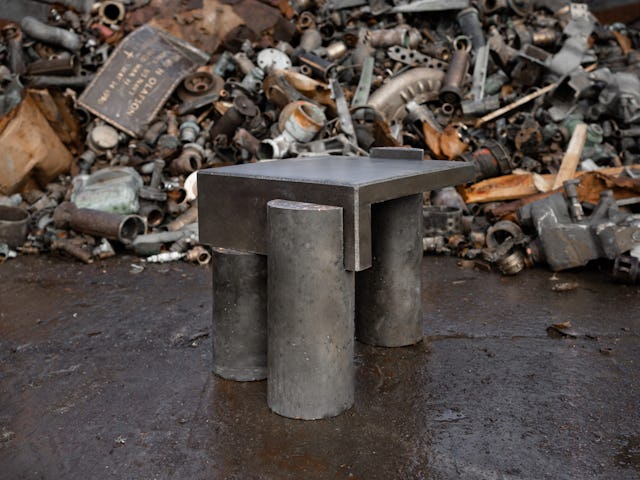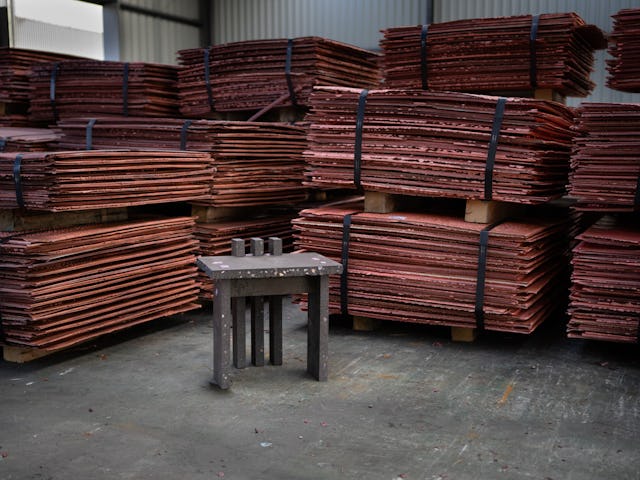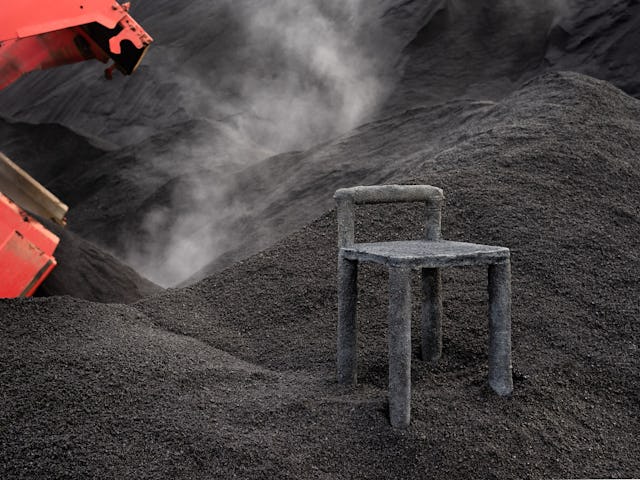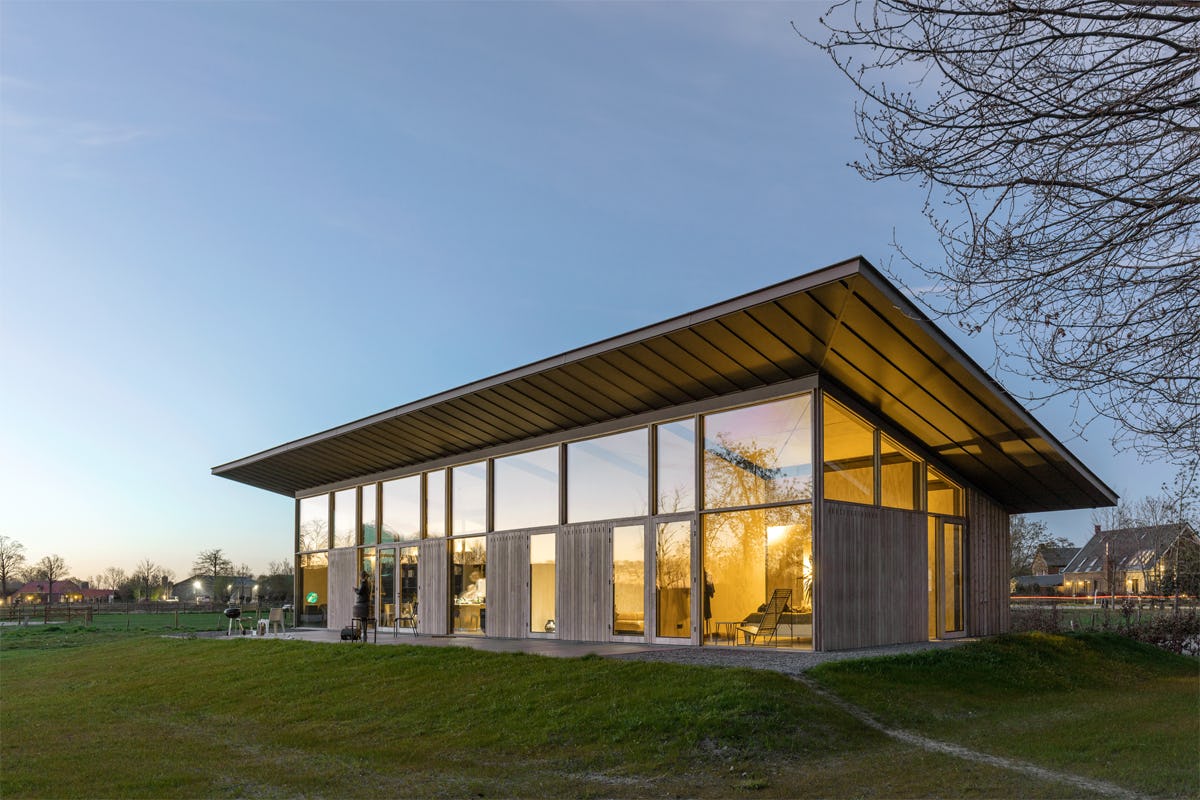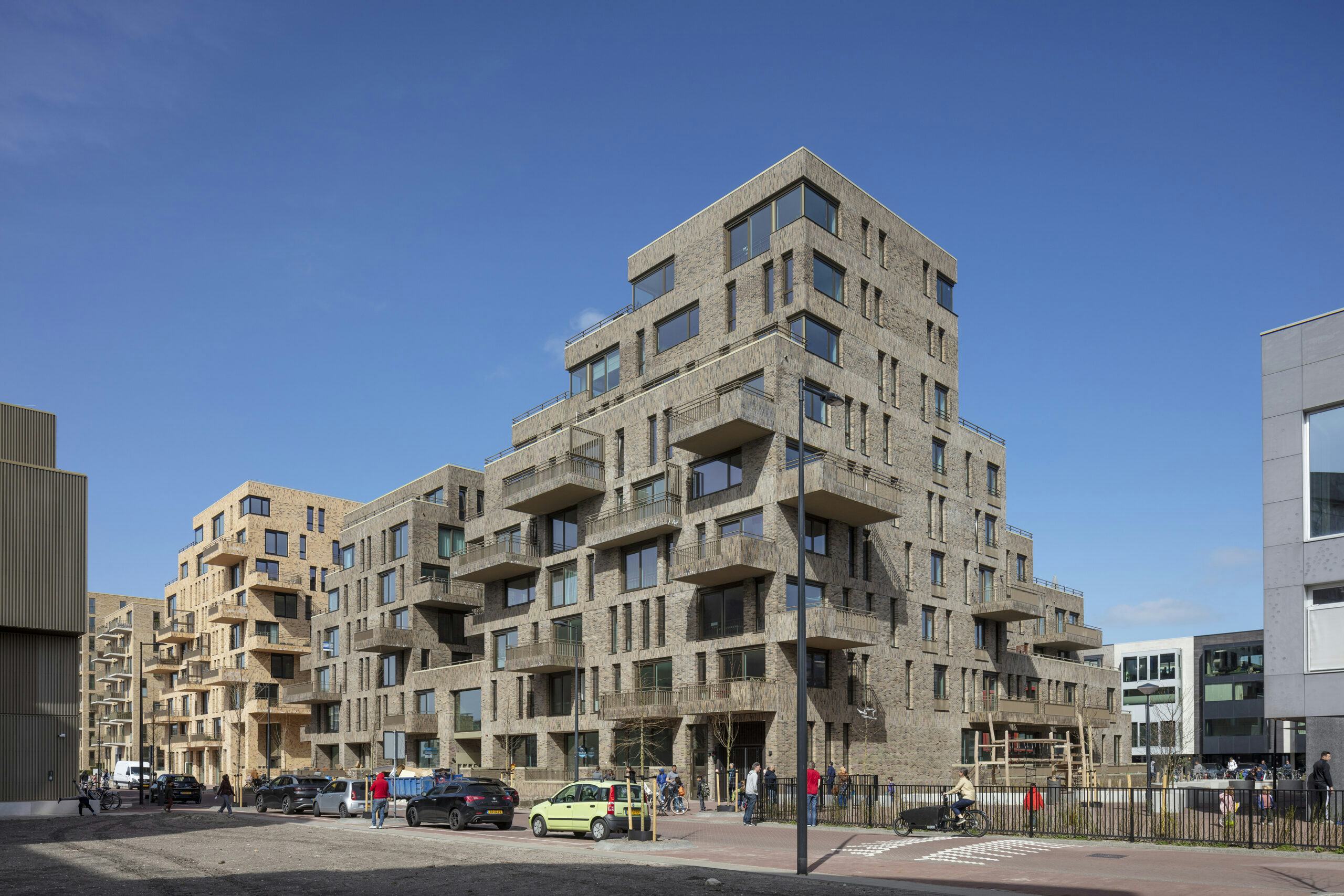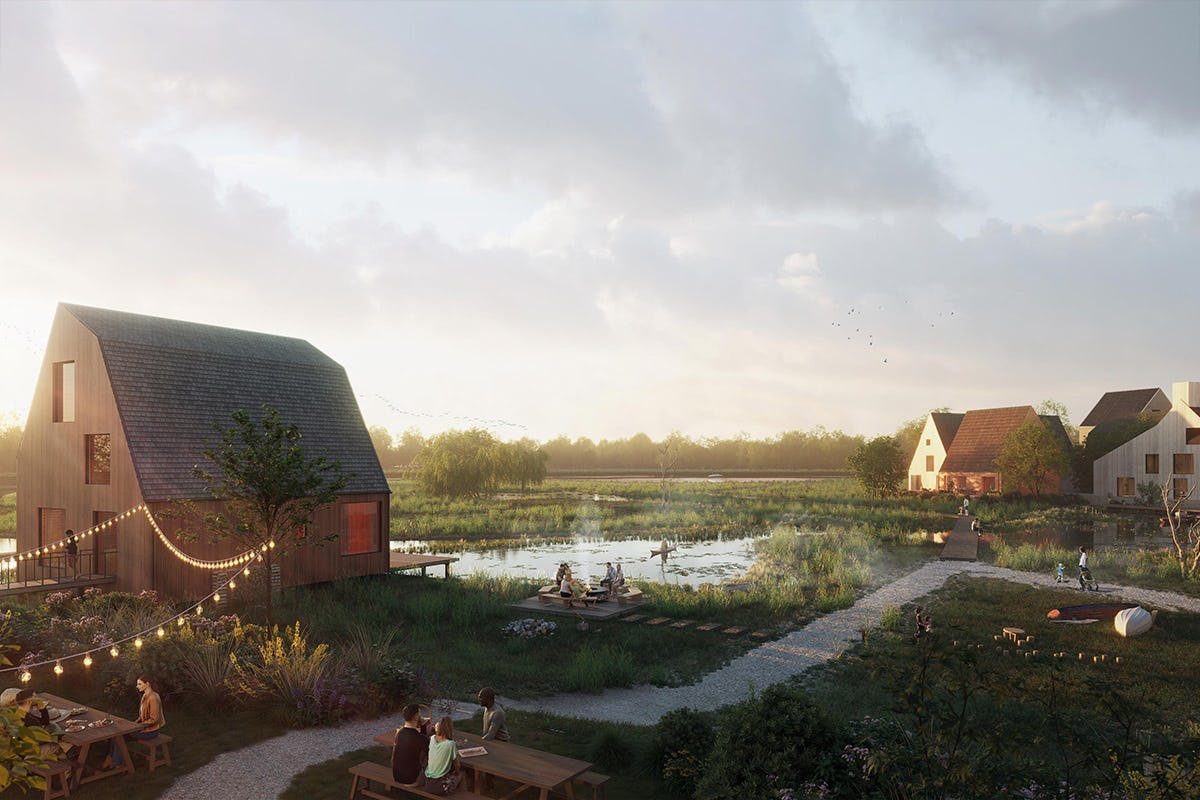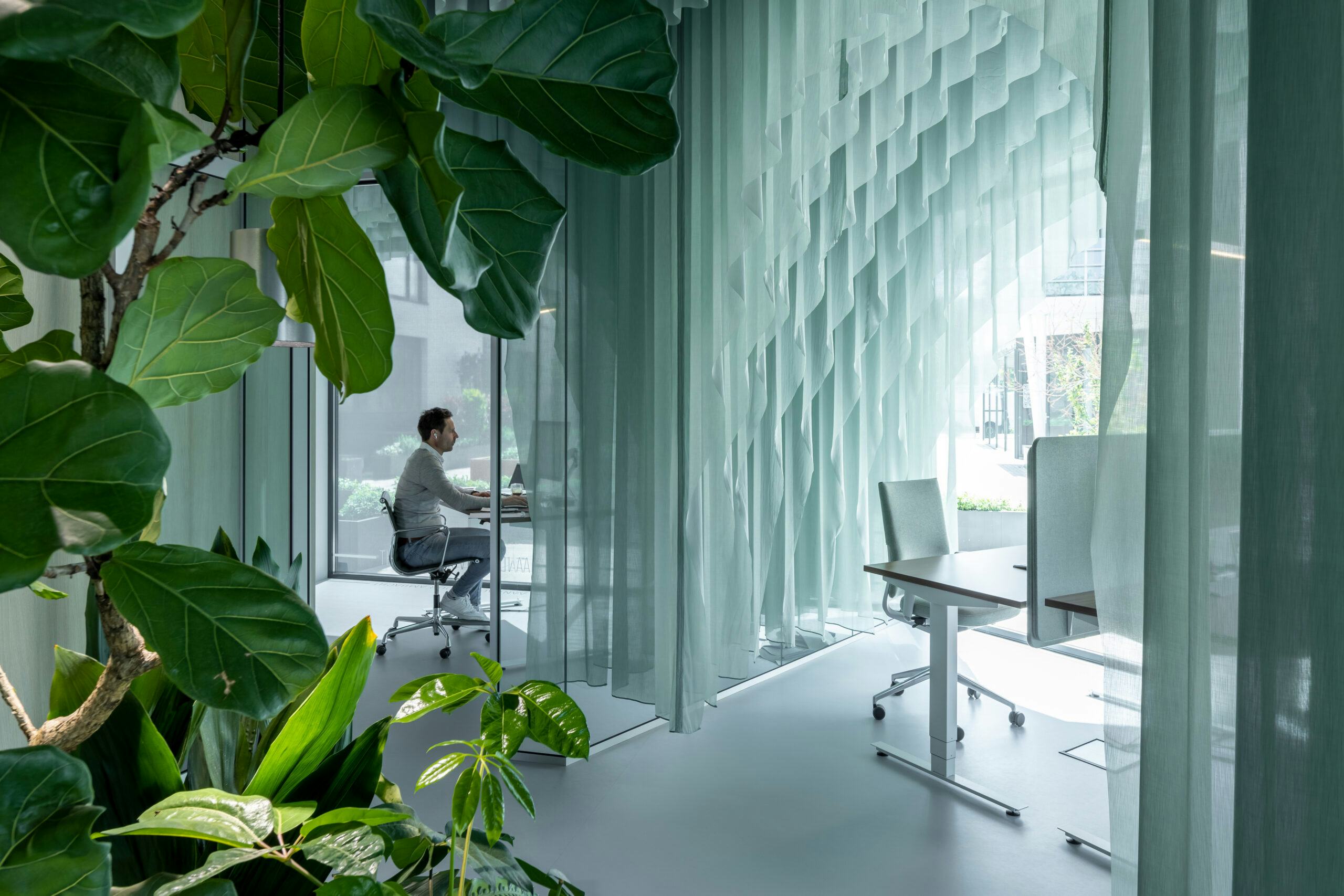Toelichting Studio ThusThat
We chose furniture objects to showcase the research into alternative building materials, namely geopolymer concretes. Harnessing the power of design and storytelling we aim to complement the academic approach and bring color and beauty to this new narrative of a more sustainable future. The existing work with this material was mainly on a lab scale and concerned with performance parameters. Therefore we had to come up with new ways of production as well as material mixes.
The contribution of the construction sector to both global CO2 emissions (8%) as well as resource depletion (e.g. scarcity of river sand) are well known issues today. In order to build a more sustainable, more healthy and more socially just society we must ensure the preservation of human habitat as we know it. Tacking these wicked problems through the utilization of waste streams plays a key role in achieving these ambitious goals.
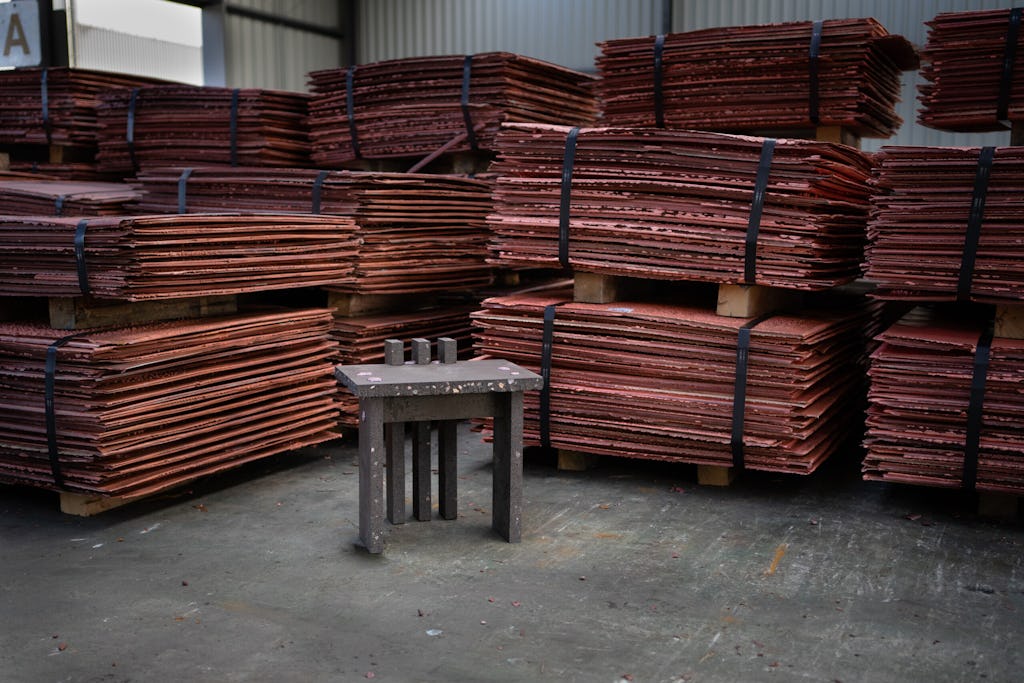
Geopolymerisation is an innovative technology that uses common inorganic compounds to create high-performance alternatives to standard cement. Because the slag has already gone through the high-temperature smelting process, it is reactive and ready to be used as a binder. It replaces the need for cement entirely.Additionally, coarser forms of slag can be used as aggregate in the place of sand. The result is a very strong black concrete-like body made from slag, with about 77% less CO2 than OPC.
We experimented with various processes and techniques in order to explore the different aspects and characteristics of the material. For instance, the individual parts of their Molten chair are joined together with molten copper, exploiting the materials' unusually high resistance to heat and thermal shock. Another example is the Sparkly Black chair that was cast directly into a pile of coarse copper slag, using the raw material itself as formwork. The process is inspired by the sand casting.
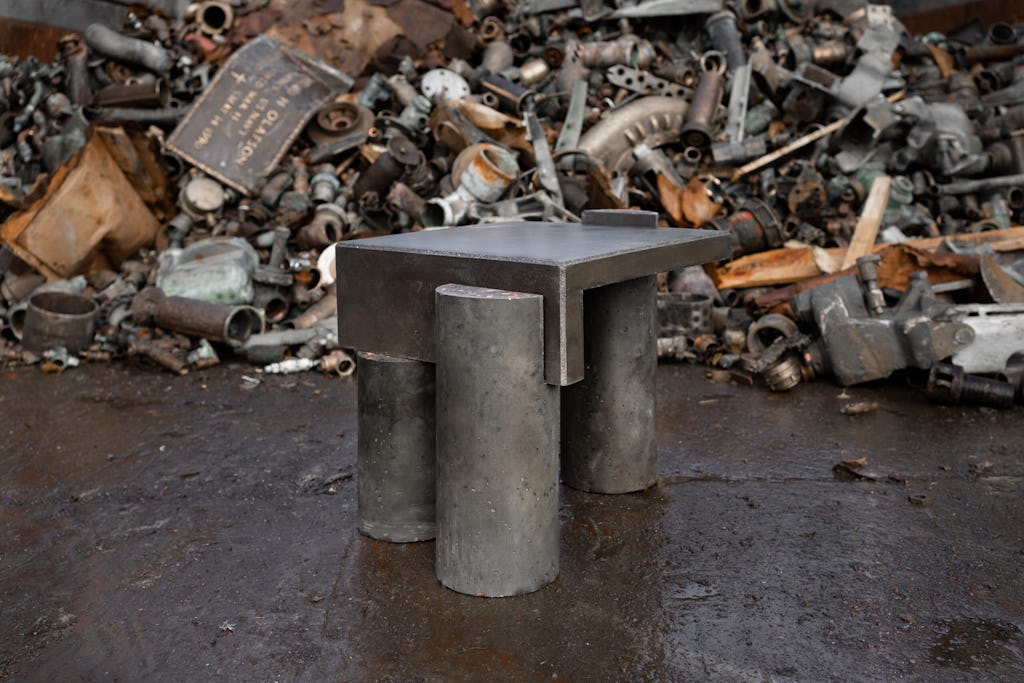
Collaboration and playing off each other's strength lies at the heart of this project. Scientists are fantastic at solving problems and developing new, better technologies. Design and architecture on the other hand have the ability to tell stories, change public perception and stimulate change on a societal level. Showcasing the academic research of KU Leuven through the means of designed objects has proven an effective way to communicate with various stakeholders from the construction sector.
Lees ook:

